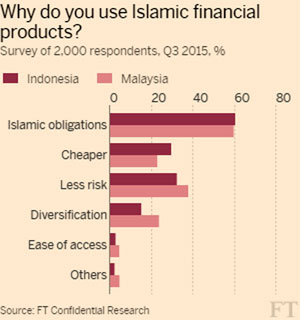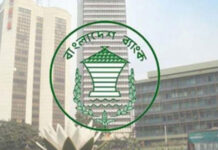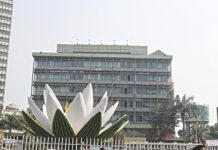Islamic banking in Southeast Asia is growing faster than conventional banking, albeit from a lower base.
Malaysia & Indonesia
In Malaysia, central bank data show the amount of outstanding Islamic loans grew 35 per cent from the beginning of 2014 to October 2015, while total loans expanded by 17 per cent.
In Indonesians also Islamic banking sector still enjoys double-digit growth: Islamic loans increased by 13 per cent and total loans by 19 per cent respectively in the same period.
A recent survey by FT Confidential Research, a Financial Times research service, found that 61 per cent of Indonesians and 73 per cent of Malaysians say that they either use Islamic banking services primarily or as often as conventional ones.
The survey found that 60 per cent of those using Islamic banking services in Indonesia and Malaysia cited religious requirements as a factor. Remaining 40 percent were calculating other factors like as risk and cost. Islamic lending, puts a cap on effective interest rates – the so-called profit rate – while there is no legal or other imposed limit on interest rates under conventional lending.
In the same survey, 13 per cent of Indonesian and 25 per cent of Malaysian Islamic banking customers were not Muslims. But despite its broad appeal, Islamic banking still has only small market shares in the two countries.
At the end of the third quarter of last year, just 7 per cent of total loans worth $284bn in Indonesia and 27 per cent of loans worth $334bn in Malaysia were Islamic, according to Bank Indonesia and Bank Negara Malaysia, the central banks.
The market for Islamic banking is bigger in Malaysia than in Indonesia, even though Malaysia’s population is just 31m, compared with about 257m in Indonesia. One reason is the “soft infrastructure” installed by the Malaysian government to support the industry, including tax breaks and coherent regulation, since the 1980s. Indeed, Malaysia is a global centre of Islamic banking and finance, with 51 per cent of all outstanding sukuk (Islamic bonds) originated from the country in 2015.
Indonesia is catching up, with various support systems still a work in progress. And as the Indonesian middle class is growing fast, the long-term potential of Islamic finance in the country grow too.
So far, Indonesians are severely underbanked compared to their regional neighbours. Only 36 per cent of adult Indonesians have a bank account, compared with 81 per cent in Malaysia, according to the World Bank.
Foreign banks are moving in. Large Malaysian banks with deep experience in Islamic finance such as Maybank and CIMB have set up in Jakarta and other big Indonesian cities as their home market saturates.
Emirates NBD, the largest banking group in the Middle East by assets, plans to acquire a stake in an Indonesian sharia-compliant bank to gain a foothold in the world’s most populous Muslim country. Other Gulf banks have expressed interest in doing the same, bypassing the competitive Malaysian market – usually the first Southeast Asian market for Middle Eastern banks.
Islamic Banking in Brunei Darussalam
The Bank started operations in 1981 as the Island Development Bank. It was converted to a full-fledged Islamic bank in January 1993 and changed its name to Islamic Bank of Brunei. Through a merger with Islamic Development Bank of Brunei, Bank Islam Brunei Darussalam was formed in 2005. BIBD is Brunei Darussalam’s largest bank and flagship Islamic financial institution.
An internationally recognised financial institution governed by global best practices and an experienced management team, BIBD is committed to meeting the needs of customers from all walks of life. Challenged and stimulated by an ever-changing environment, BIBD brings technology and innovation to the fore for improved processes and accessibility.
Headquartered in Bandar Seri Begawan, the Bank has fifteen branches at strategic locations in Brunei’s four districts and the Brunei’s Leading Financial Institution largest network of ATMs in the country. As Brunei Darussalam’s flagship Islamic bank and largest financial services provider, with over 700 employees and B$ 6 billion worth of assets under management, BIBD proudly serves more than 100,000 consumers.
BIBD is the only bank in Brunei Darussalam that serves all sectors and segments within the retail banking market. With a strong focus on innovation and excellence, BIBD has been consistently recognized for its superior customer service and ability to deliver value to all its stakeholders. It is through continuous hard work, effort and commitment from our people that we are able to provide seamless and innovative services to our customers, and ensure that their banking experience with us is unique and best-in-class.
Islamic Banking in Bangladesh
In August 1974, Bangladesh signed in the Charter of Islamic Development Bank and committed itself to refom its economic and financial system according to Islamic Shariah.
In November 1980, Bangladesh Bank sent a representative to study the working of several Islamic Banks abroad.
In January 1981, while addressing the 3rd Islamic Summit Conference held at Makkah and Taif, the-then Bangladesh President Ziaur Rahman suggested: “The Islamic countries should develop a separate Banking system of their own in order to facilitate their trade and commerce.”
In November 1982, a delegation of IDB came to Bangladesh and showed their keen interest in establishing a joint venture Islamic Bank in the private sector. Two professional bodies Islamic Economics Research Bureau (ERB) and Bangladesh Islamic Bankers’ Association (BIBA) made significant contributions towards introduction of Islamic Banking in the country. They came forward to provide training on Islamic Banking to top Bankers and economists to fill-up the vacuum of leadership for the future Islamic Banks in Bangladesh. They also held seminars, symposia and workshops on Islamic economics and Banking throughout the country to mobilize public opinion in favor of Islamic Banking.
In March 1983, the long drawn struggle to establishment of an Islamic Bank in Bangladesh became a reality and Islami Bank Bangladesh Limited (IBBL) was formed in which 19 Bangladeshi nationals, 4 Bangladeshi institutions and 11 banks, financial institutions and government bodies of the middle East and Europe including IDB and two eminent personalities of the kingdom of Saudi Arabia joined hands. The new paradigm of welfare-oriented banking and the innovation of interest-free banking systems, proved its worth in the country’s money market and many new banks have been established to operate in compliance with Shari’ah and many traditional banks have opened their Islamic banking windows.
On 11 October 1995, an Islamic Banks Consultative Forum (IBCF) was set up with a view to establish effective interaction among all Islamic Banks and Banks having Islamic Banking branches to march together, be united on various issues affecting the banking sector, establish Islamic Money Market and strengthen interest-free Shariah based banking system in Bangladesh.
By now, Islamic Banking system has attained mass popularity in Bangladesh. As a result, area of Islamic Banking is increasing day by day. Besides, the Conventional Banks & Islamic Banks are working unitedly. Initially, Islamic Banks Consultative Forum came out in public with the joint collaboration of 4 (four) Banks i.e. Islami Bank Bangladesh Limited, Al-Baraka Bank Limited (Now ICB Islamic Bank), AL-Arafah Islami Bank Limited and Social Investment Bank Limited (Now Social Islami Bank Ltd). Within 19 years, the number of Members of IBCF rose to 14 (Forteen). Eight member Banks of IBCF are carrying on their entire banking operation according to Islamic Shariah. Six are operating Islamic Banking in some of their branches. 2 (two) more banks have expressed their intention to join IBCF.
Islamic Banking in Maldives
The Maldives possess a narrow financial sector, which is dominated by the banking sector, which makes up 96% of total assets. Due to the geographical spread and low population density, delivering financial services faces major challenges and access to finance remains a problem. As of 2011, the banking sector in the Maldives included seven banks: two are locally incorporated banks, four are branches of foreign banks, and one is a subsidiary of a foreign bank. The locally incorporated banks include the Bank of Maldives Limited, the national bank which is majority-owned by the Government of Maldives and has 25 branches throughout the country. Alongside this, is the Maldives Islamic Bank, the first Islamic bank in the country, opened in March 2011.
The plan to setup Maldives Islamic Bank was initiated way back in 2007 when the Maldives Monetary Authority granted permission to the Islamic Corporation for the Development of the Private Sector (ICD) to establish the first Islamic bank in the Maldives. In 2009, ICD signed the shareholders agreement with the Government of Maldives to initiate the project. This was followed by the incorporation of Maldives Islamic Bank (MIB) on 1st April 2010 and the submission of a formal application for a banking license to the MMA. MIB received the banking licence to conduct Islamic banking business from the MMA on 2nd August 2010.
MIB is a collaboration between ICD which holds 85% share and the Government of Maldives represented by the Ministry of Finance and Treasury, owning the balance 15%. The total share capital of the bank currently stands at MVR. 165 million.
On 7th March 2011, officially the bank started its business operation. A special opening ceremony was held inviting officials from the government and private business sectors. MIB aims to provide an alternative to the public and businesses who wish to avail themselves to banking transactions and dealings in strict compliance to Islamic banking principles.
MIB shall conduct its business in strict compliance with Shariah principles and guidelines devoid of any element of interest, gharar (uncertainty), maisir (gambling) and unethical practices. It aims to offer an alternative form of financial services to the general public, both individuals and businesses, who are desirous of conducting their transactions in conformity with Shariah requirements.
MIB shall participate actively in the development and promotion of an Islamic economic and financial system in the Maldives to run parallel with the existing conventional system as its contribution to the betterment of the economic well-being of the ummah generally.
Source: Weekly Holiday










